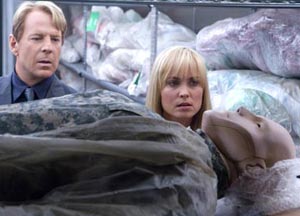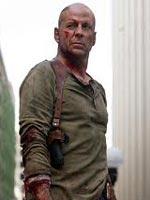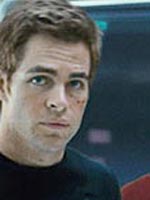 |
| Bruce Willis and Radha Mitchell star in Surrogates, based on a comic-book series. |
Cellphones, medical tricorders, instant translators, noninvasive surgery and phasers set to stun ... the technology of 1960s Star Trek is the technology of today. Star Trek, like the best science fiction literature and film, imagined a future and anticipated the social and ethical challenges we face today.
Which is what makes science fiction so interesting to talk about.
“In science fiction, a lot of the metaphors and analogies -- for example, space aliens who stand in for people of different races -- allow a critical distance so we can engage in ideas in a more dispassionate way,” muses Andrew Fenton, postdoctoral research fellow with ±«Óătv’s Novel Tech Ethics.
Because of the capacity of science fiction to spark discussion, Situating Science Atlantic Node is holding a sci fi movie and panel discussion series. The film screenings take place Tuesday evenings throughout the month of October. The first film, Surrogates, raises questions about virtual communications and the danger of retreating into artificially constructed lives. There’s a lot of good stuff for panelists Darren Abramson, Stephen Snobelen and Thomas Trappenberg to delve into.
Other films in the series are District 9, Moon and the latest Star Trek. “At its best, science fiction isn’t didactic (like Avatar). It allows you to think these big questions through,” says Letitia Meynell, assistant professor with the Department of Philosophy.
Created in 2007 with funding from the Social Sciences and Humanities Research Council of Canada, Situating Science is a seven-year project promoting communication and collaboration among humanists and social scientists that are engaged in the study of science and technology. There are six nodes across the country; the Atlantic node is situated at the University of King’s College/±«Óătv University.
Films screen Tuesdays, 7 p.m. in the month of October. The location is Room HA19, Architecture and Planning, 5410 Spring Garden Rd. Admission is free.
 | Surrogates (2009): Set in a futuristic world where humans live in isolation and interact through surrogate robots, a cop (Bruce Willis) is forced to leave his home for the first time in years in order to investigate the murders of others' surrogates. On the panel: Darren Abramson (Department of Philosophy, ±«Óătv University); Stephen Snobelen (History of Science and Technology Programme, University of King’s College); Thomas Trappenberg (Faculty of Computer Science, ±«Óătv University). Screens Tuesday, Oct. 5, 7 p.m. |
 | District 9 (2009): An extraterrestrial race forced to live in slum-like conditions on Earth suddenly find a kindred spirit in a government agent. On the panel: Dorota Glowacka (Contemporary Studies Programme, University of King’s College); Chike Jeffers (Department of Philosophy, ±«Óătv University); Stephen Snobelen (History of Science and Technology Programme, University of King’s College). Screens Tuesday, Oct. 12, 7 p.m. |
 | Moon (2009): Sam Rockwell plays a man experiencing a personal crisis as he nears the end of a three-year solitary stint on the far side of the moon. On the panel: Dorota Glowacka (Contemporary Studies Programme, University of King’s College); Teresa Heffernan (Department of English, Saint Mary’s University); Stephen Snobelen (History of Science and Technology Programme, University of King’s College). Screens Tuesday, Oct. 19, 7 p.m. |
 | Star Trek (2009): A chronicle of the early days of James T. Kirk and his fellow USS Enterprise crew members. On the panel: Melanie Frappier (History of Science and Technology Programme, University of King’s College); Jason Haslam (Department of English, ±«Óătv University); Stephen Snobelen (History of Science and Technology Programme, University of King’s College). Screens Tuesday, Oct. 26, 7 p.m. |
